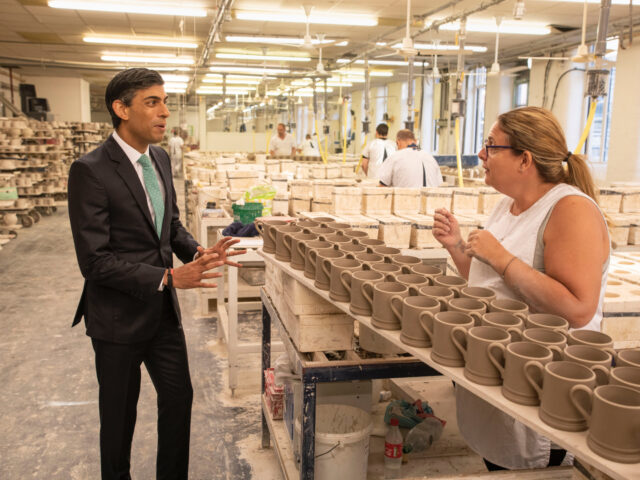Real wages in Britain are not expected to return to 2008 levels until 2027 as workers are expected to miss out on some £15,000 in pay rises over the next five years due in large part to the financial mismanagement of the Tory government.
Following finance chief Jeremy Hunt’s autumn statement, which raised UK taxes to the highest level since the 1940s despite the country likely already being in a recession, the Resolution Foundation think tank found that real wages will be on average £292 lower per week, or £15,000 annually than they would have been if growth had sustained at levels prior to the economic crisis.
The think tank singled out the technocratic government of Rishi Sunak and Hunt’s plans to hike taxes, which it noted will particularly “squeeze” the middle class and will result in a permanent 3.7 per cent loss in income for the average British household, The Guardian reported.
The Office for Budget Responsibility (OBR) predicted that the downward slump will last over a year, and see two per cent of GDP wiped off. The government watchdog went on to predict that unemployment will rise from 3.6 per cent to 4.9 per cent by the third quarter of 2024.
The OBR went on to forewarn that the average living standards for Britons will decline by seven per cent over the next two financial years, essentially eliminating all the economic growth seen over the past eight years. It noted that this decline in living standards will represent the sharpest fall since records began in 1956 and just the third instance since of living standards decreasing over two straight years.
Economist Thomas Pugh said: “The OBR’s forecasts paint a dire picture of the economic outlook over the next two years, with a year-long recession and a record-breaking fall in households’ real incomes.”
The director of the Institute for Fiscal Studies Paul Johnson, added: “The next two years look grim in terms of living standards.”
While Chancellor Jeremy Hunt attempted to blame the financial calamity befalling the UK on “global” forces outside of the government’s control, namely the Chinese coronavirus and the “made in Russia” energy crisis, others have pointed to failures of the government.
Reform UK leader Richard Tice said that the decision by the Tories to hike taxes during what appears to be the start of a recession represented a “managed decline” strategy, adding: “It is an unnecessary disaster for ordinary people.”
The leader of the populist right-wing party — which has seen a surge in the polls following the installation of Rishi Sunak in Downing Street — went on say that the energy crisis in the UK was largely “self-inflicted” as a result of the Conservative Party’s “obsession” with the net-zero climate agenda.
Indeed, while Hunt stressed how the burden for solving the economic crisis should be shared, this apparently will not be true for the green industry. The government will raise the windfall tax on “excessive” profits of oil and gas firms from 25 to 35 per cent in order to raise more money to throw at the green agenda in the hopes of cutting emissions by 68 per cent by the year 2030.
Rather than exploiting its natural resources such as the natural gas deposits in the Bowland Shale, Prime Minister Rishi Sunak used one of his first acts to reinstate the ban on fracking which failed prime minister Liz Truss had attempted to lift. The failure of successive conservative governments to exploit such resources, or indeed to aggressively pursue nuclear energy, has left the UK vulnerable to international price shocks.
Although Britain only receives four per cent of its natural gas from Russia, it is still reliant on European countries to provide electricity via underwater cables in the English Channel, which may result in energy blackouts if supplies falter during the cold of the winter.
Contrary to Hunt’s claims of global factors, the British parliament has also previously been told that the decision to lock down the economy during the Chinese coronavirus — a move that was championed by Mr Hunt — were the chief cause of the inflation crisis in Britain, not the war in Ukraine, as is often pointed to as the principle factor.
Brexit leader Nigel Farage also criticised the high tax agenda of the globalist Tory government, saying that the so-called Conservatives have effective “declared war” on small business in the country.
Mr Farage, who has long been a champion of calling for businesses to return to Britain, added: “If you want to start up a business, a small business, and if you’re a young entrepreneur, the message is clear: don’t do it in the United Kingdom. Go to Portugal, go to Italy, go elsewhere around Europe or the rest of the world where they actually want people who are prepared to take risk and set up business.”
Follow Kurt Zindulka on Twitter here @KurtZindulka

COMMENTS
Please let us know if you're having issues with commenting.